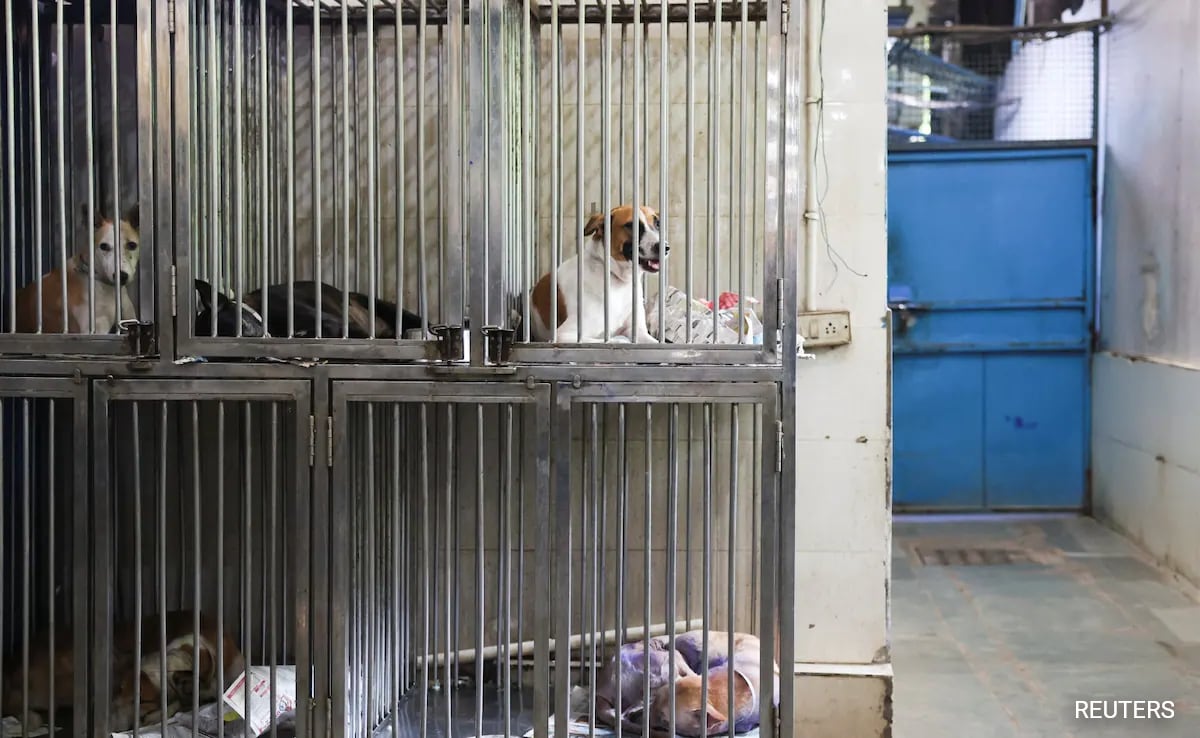

The Supreme Court is expected to announce its decision today regarding the relocation of stray dogs in Delhi and the National Capital Region (NCR). This follows an earlier order from August 11, 2025, which directed authorities to remove stray dogs from all localities and transfer them to shelters. The Supreme Court's initial order sparked widespread protests and raised concerns about the practicality and ethics of mass relocation.
Background The case began with the Supreme Court taking suo moto cognizance of a news report highlighting the increasing number of dog bite incidents and rabies cases, particularly among children, in Delhi. The two-judge bench of Justices J.B. Pardiwala and R. Mahadevan ordered authorities to begin removing stray dogs from localities "at the earliest" and place them in shelters. The order also required the creation of shelters capable of housing at least 5,000 dogs, with a progress report due in eight weeks. The bench warned of strict action against anyone obstructing the order.
Controversy and Challenges The Supreme Court's order faced immediate criticism and protests from animal rights groups, activists, and citizens. Critics argued that the order disregarded the Animal Birth Control (ABC) Rules, 2023, which emphasize the sterilization and vaccination of stray dogs, followed by their release back to their original territories. They argued that mass relocation is inhumane, unscientific, and violates established ABC rules. Concerns were also raised about the lack of infrastructure to support mass relocation and the financial burden it would place on civic bodies.
Several Interlocutory Applications (IAs) were filed in the Supreme Court, seeking a recall of the order. Lawyers appearing for various organizations urged the special bench to stay some of the directions passed by the two-judge bench.
Arguments Presented Solicitor General Tushar Mehta, representing the Delhi government, highlighted the severity of the public health challenge. He stated that India reported approximately 37.15 lakh dog bite cases in 2024, averaging nearly 10,000 incidents per day. He also cited World Health Organization data, noting 305 dog-bite-related deaths in India last year. Mehta argued that immediate intervention was necessary to protect public safety and urged the court to craft an effective solution while ensuring dogs are treated humanely through sterilization and separation.
Conversely, animal rights activists and legal experts argued that the ABC Rules, 2023, legally require street dogs to be caught, sterilized, vaccinated against rabies, and released back into their original territories. They emphasized that these rules are recognized as the only lawful method of stray dog population management in the country.
Supreme Court's Observations
During the hearing on August 14, the three-judge bench, comprising Justices Vikram Nath, Sandeep Mehta, and N.V. Anjaria, criticized the Delhi government and civic bodies for failing to enforce the regulatory framework designed to manage stray dog populations. The bench observed that the entire problem of stray dogs in Delhi-NCR resulted from the inaction of local authorities, who failed to implement the Animal Birth Control Rules on sterilization and immunization of canines.
Animal Birth Control (ABC) Rules
The ABC Rules, 2023, stem from The Prevention of Cruelty to Animals Act, 1960. These rules aim to manage stray dog populations through vaccination and sterilization. The rules mandate a process for operating a sterilization center, including obtaining recognition from the Animal Welfare Board of India (AWBI) and ensuring personnel undergo AWBI-approved training. The ABC program directs civic bodies to catch, neuter, vaccinate, and release strays back to their original locations. Financial assistance is available for sterilization programs, facility development, and anti-rabies vaccines.
Conflicting Views
The situation has divided people, including politicians, sports personalities, actors, and other celebrities. Some argue for prioritizing public safety and removing stray dogs, while others advocate for animal rights and the implementation of ABC Rules. Concerns have also been raised regarding the practicality of mass relocation, the potential suffering of dogs in shelters, and the ecological impact of removing them from the streets.
The Supreme Court’s decision today is highly anticipated, with potential implications for both public safety and animal welfare in Delhi and the NCR.